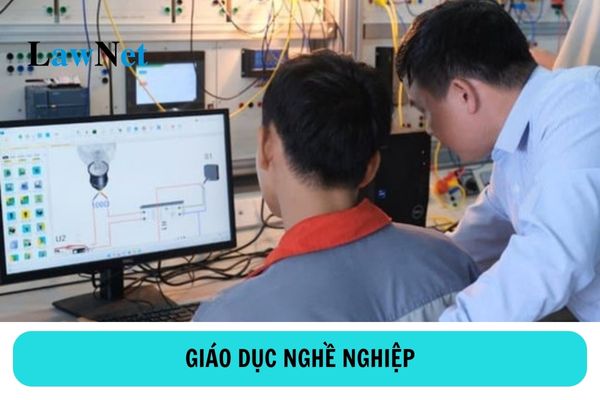Vietnam: State policies on vocational education development
State policies on vocational education development
According to Article 6 of the Vocational Education Law 2014 of Vietnam, the State policies on vocational education development are as follows:
- Development of open, flexible, diversified system of vocational education which in the way of standardization, modernization, democratization, socialization and international integration, connectivity between levels of vocational education and between other training levels.
- Investment in vocational education shall be given priority in the policies on socio-economic development and human resource development. The budget for vocational education shall be given priority in the total government budget expenditures on education and training and it shall be allocated according to public, transparent, and promptly rules.
- Invest in improving training quality, develop vocational education institution network under the planning; invest in some major and high quality vocational education institutions in order to meet the needs of labor market and learning of workers and universalize vocational education to the youth.
- The State adopts policies on classifying lower secondary school and upper secondary school graduates into vocational education institutions in conformity with every period of socio-economic development.
- Synchronously invest in training human resource in national major disciplines, or disciplines accessing to the advanced levels of the region and the world; attach special importance to vocational education in severely disadvantaged areas, ethnic minority areas, border, island, and coastal areas; invest in training in vocations required by the labor market but that they are difficult to invest in private sector involvement.
- The State shall invite tenders or place orders for the training pertaining to specific disciplines; disciplines of key industries; disciplines required by the labor market but they are difficult to invest in private sector involvement. The vocational education institutions are invited tenders or placed orders for training regardless of types of institutions as prescribed in this Clause.
- Support entities with meritorious services to the Resolution, demobilized soldiers, ethnics, poverty or near poverty families, the disabled, supportless orphans, fisherman catching fishes offshore, rural-area workers directly working in agricultural production households whose farmland is withdrawn and other beneficiaries of incentive policies on education in order for they to find jobs, self-employ, or set themselves up in business; and establish gender equality in vocational education.
- The State enables vocational education institutions to study and apply science and technology; combine training with scientific research and production, businesses, or services in order to improve training quality.

State policies on vocational education development (Image from the Internet)
Vocational education institutions and types thereof
Pursuant to Article 5 of the Vocational Education Law 2014, vocational education institutions and types thereof are as follows:
- Vocational education institutions include:
+ Vocational education centers;
+ Vocational training schools;
+ Colleges.
- Vocational education institutions shall be organized under following types:
+ Public vocational education institution is a State-owned vocational education institution, whose facilities invested and constructed by the State;
+ Private vocational education institution is a vocational education institution under ownership of a social organization, a socio-professional organization, a private economic organization or individual, or a vocational education institution invested and constructed by a social organization, a socio-professional organization, a private economic organization, or an individual;
+ Foreign-invested vocational education institution includes wholly foreign-invested vocational education institution; joint-venture vocational education institution between domestic investors and foreign investors.
What are the objectives of vocational education?
According to Article 4 of the Vocational Education Law 2014, the objectives of vocational education are as follows:
- General objectives of vocational education are: provide training for personnel directly involved in production, businesses or services, who acquire proficiency equivalent to their training standards, possess professional ethics and good health, gain creative ability, adapt to the environment in the context of international integration; improve their productivity and quality; and enable students to find jobs, self employ or enter higher education.
- Specific objectives pertaining to every level of vocational education:
+ Elementary level: equip students for abilities to perform simple tasks of a particular job;
+ Intermediate level: equip students for abilities to perform elementary-level tasks and some complicated and special tasks; apply technology to their jobs, work independently or work in groups;
+ College level: equip students for abilities to perform intermediate-level tasks and some complicated and special tasks; acquire abilities to create and apply modern technology to their jobs, instruct and observe other members in their groups in performing the tasks.

